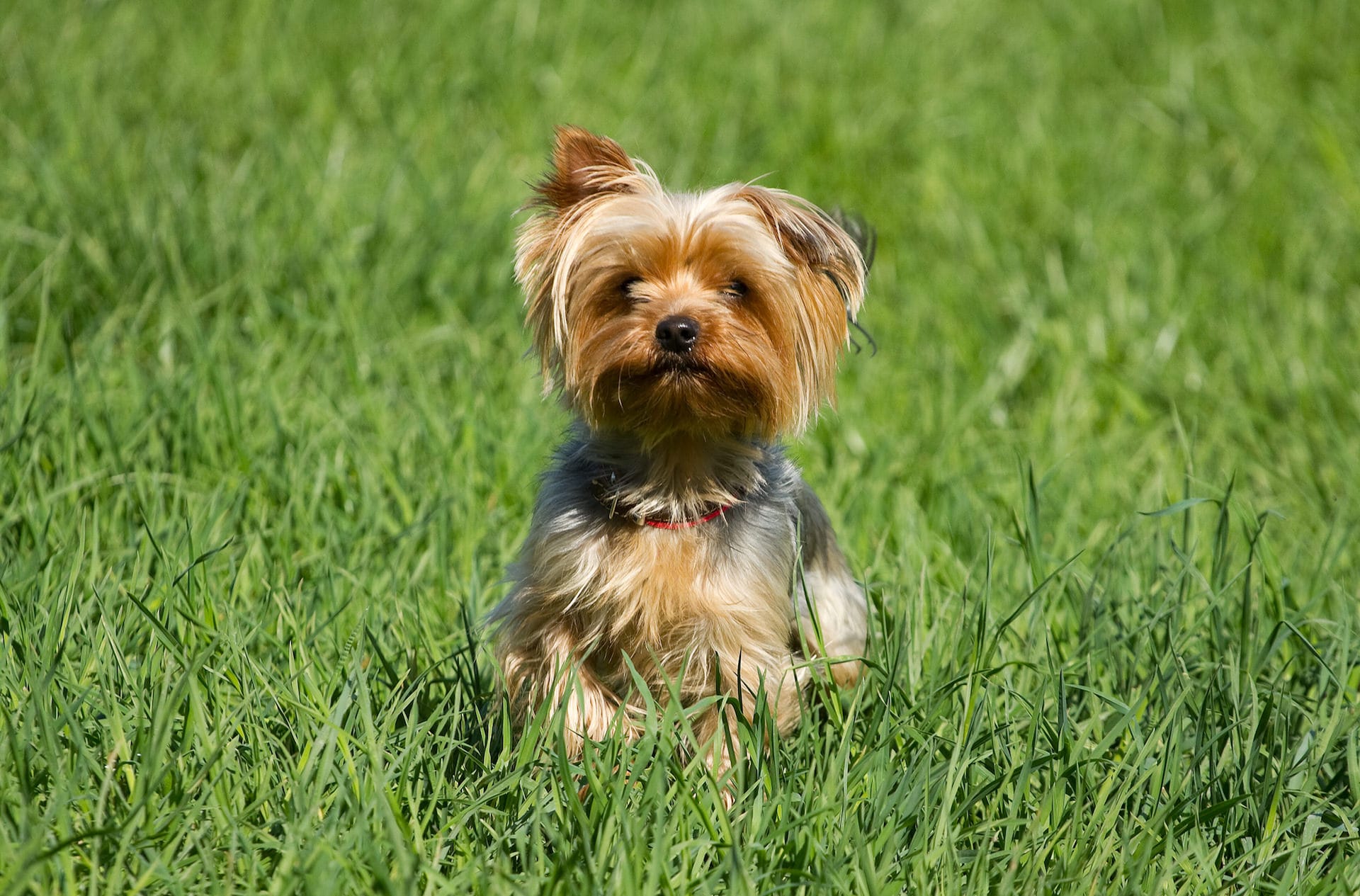The Yorkshire Terrier, also known as a “Yorkie”, falls firmly into the ‘toy’ category at Kennel Club shows, and longer-haired versions of the dog are often groomed elaborately.
This breed is characteristically bold, bright and fearless. Their loyal and spirited nature make them the perfect house pet for people of all ages. They are mischievous characters though, so training from infancy and an owner with a stern attitude are essential to keep this dog in line. They are also known for their boldness, despite their small size, and will often confront larger dogs.
These dogs are active indoors, and while they still require regular walking, you may find that your dog isn’t partial to cold or wet weather.
The size of this breed, combined with its loyalty, has led to its use as a fashion accessory for many women, who carry them in handbags or under their arms. While these dogs are very affectionate toward their owners, they do not display typical “lap dog” characteristics as they age.
Pet profile
Typically suited to smaller, relaxed households.
- Small (20cm to 23cm)
- Typically weighing between 1.5kg and 3kg
- 12 to 15 years life expectancy
Exercise and nutrition
As an intelligent and energetic breed, the Yorkshire Terrier should have an outdoor area in which to run around and get rid of any pent-up energy, as well as plenty of activities and toys to keep them mentally and physically active. Take time to play games and bond with your Yorkie! A bored Yorkie can typically be a destructive or disruptive one. They shouldn't require more than 30 minutes of walking exercise a day as they are small.
Yorkies obtained from a breeder will typically have a pre-established feeding routine - it is advised that you keep to this in order to prevent any stomach upsets or other gastric issues. Older dogs are not particularly fussy eaters but should be fed two meals in the morning and evening of good quality dog food that meets their nutritional needs. Yorkshire Terriers can also be prone to obesity - take care to increase the amount of exercise your dog is receiving if you notice them putting on excess weight.
Common health problems and illnesses
Unfortunately, Yorkshire Terriers have their share of health issues. As such, it’s a good idea to take out pet insurance for your Yorkie while they’re still a puppy.
This condition is caused by a malfunction of the adrenal glands causing them to produce too much cortisol. Signs to look out for are excessive drinking and frequent urination, hair loss, weight gain, panting and abdominal swelling, and lethargy, but these symptoms can also indicate other conditions, so it can take some time to diagnose. It is more common in middle aged or older dogs but if you are at all concerned please take your Yorkie to the vet as soon as possible.
Hypoglycemia occurs when the blood sugar levels of your Yorkie fall too low, and this can result in an uncharacteristic lethargy. This is typically caused by stress, excessive exercise, missing meals, or poor diet. Symptoms and warning signs can include: your dog looking disoriented and confused, lethargy, sudden collapses, shivering, seizures, weak and unsteady appearance, strange eating patterns, anxiety, and a higher than normal heartbeat.
This is a serious condition that requires emergency treatment by a vet.
Yorkshire Terriers can be particularly susceptible to pancreatitis. Symptoms to watch out for (which are typically very similar to other diseases) include a painful abdomen, depression, a hunched-up posture, fever, and vomiting. In more severe cases, the dog can develop an arrhythmic heartbeat, difficulty breathing and sepsis. If you notice any of these symptoms, it is advised that you consult your vet immediately.
Lens luxation is a condition that causes your dog to dislocate the lens in their eye. This can cause a block within the drainage channels within the eye. The build-up of pressure in the eye can be painful, and if it is not treated, then there is a chance that your dog could go blind. Take your dog to your veterinarian if you notice any changes in their eyes, and they will be able to diagnose any potential problems and prescribe the best course of treatment.
Fun facts
- Yorkshire Terriers saw a lot of action in the 1800s as hunting dogs and ratters! They were sent underground to flush out the pest animals.
- A newborn Yorkie can weigh as little as 70g!
- Yorkshire Terriers make great therapy dogs or companions to children, due to their love of sitting on laps - the first known therapy dog was a Yorkie!
- Yorkies were originally called “Broken-haired Scotch Terriers”. Yorkshire Terriers can honk like geese! They are prone to “reverse-sneezing”, which produces a strange honking sound. This may sound alarming but is perfectly harmless!

